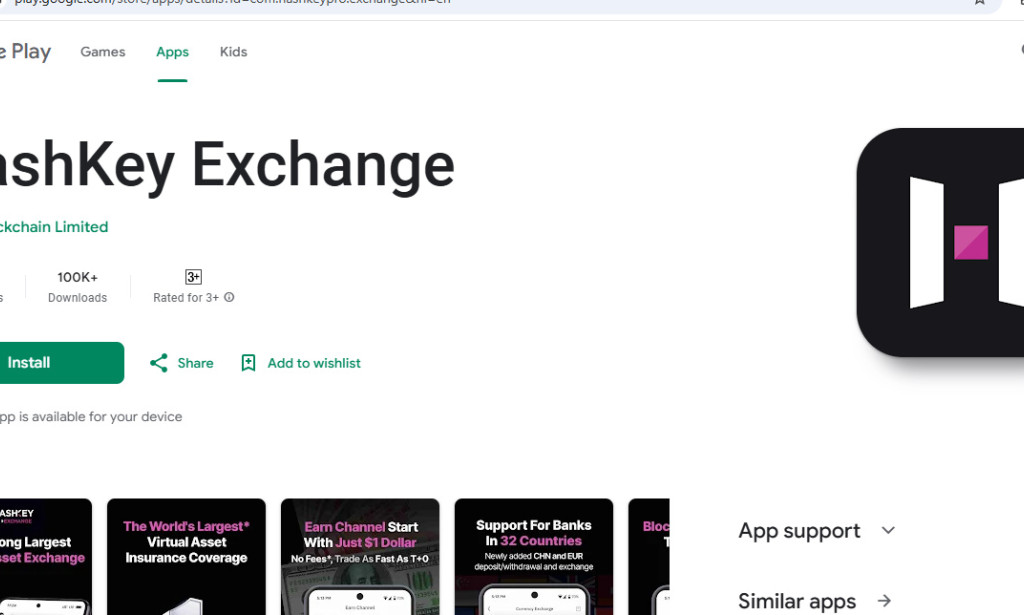HashKey Exchange Review (2025): Is It a Legit Crypto Platform or Another Investment Scam?
HashKey Exchange, often stylized as "Hash Key Exchange," claims to be a modern crypto investment, trading, and mining platform. Promoting its own native token called HSK (HashKey), the platform offers newcomers a free bonus of 420 HSK tokens upon signing up. But what exactly are these tokens worth—and can they be redeemed for real money?
In this review, we break down everything you need to know about HashKey Exchange, including the company background, source of income, red flags, real-world utility, and whether it’s a legit investment option or just another crypto-themed scam.
💼 Who Owns HashKey Exchange? CEO & Company Transparency
The platform does not clearly mention any verifiable CEO, company registration, or physical office address on its main promotional materials. However, based on online sources:
-
HashKey Group is a known Hong Kong-based digital asset firm.
-
Michel Lee is listed as Executive President of HashKey Group.
-
However, there are many fake clone platforms online posing as part of HashKey Group, which is a major red flag.
Always double-check you are on the official domain: https://www.hashkey.com
If the version you are using claims to work with other sites like Lodpost or third-party rewards platforms but doesn’t match the official HashKey branding or domain, it is likely a scam or copycat version.
💰 Source of Income: How HashKey Makes Money
If you’re using the real HashKey Exchange:
-
Revenue likely comes from crypto trading fees, token sales, and partnerships.
If you’re using a fake version of the app (like those circulating on third-party rewards apps):
-
These apps generate income through ad revenue, in-app purchases, or worse—scam tactics to get your personal or financial data.
❗️ Major Red Flags in HashKey Exchange (Scam Version)
-
Fake Promises of Free Money: Free 420 HSK tokens are often offered, but they have no real value or cannot be converted into usable crypto.
-
Lack of Withdrawal Option: Most users report no working withdrawal feature.
-
Suspicious Domain or App Interface: If it doesn’t match the professional layout of hashkey.com, it’s likely a scam.
-
Manipulated Market Charts: Fake apps often show 100% growth charts with no risks, misleading users to deposit real money.
-
Push Toward "Show Hand" Investing: Encouraging users to invest everything with false claims of "guaranteed returns" is a classic scam tactic.
❓ Can You Really Make Money with HashKey Exchange?
-
On the real HashKey platform, yes, but with the usual crypto risks.
-
On the scam versions of HashKey apps floating around online—no.
These fake platforms:
-
Waste your time with worthless tokens.
-
Trick you into watching ads.
-
Push in-app purchases or "premium plans."
-
May even steal your information.
Always verify the platform by checking its registration, executive leadership, and user reviews on trusted sites.
⚠️ Real Risks of Crypto Platforms Like HashKey
Crypto investment is highly speculative:
-
Prices fluctuate wildly.
-
Losses are real and often permanent.
-
You are not protected by traditional banking regulations.
Even legit exchanges carry high risk. So when a clone or fake app mimics a real crypto company—the danger multiplies.
Never invest more than you can afford to lose.
📊 Final Verdict: HashKey Exchange - Scam or Legit?
-
Legit Version: HashKey.com is a regulated platform based in Hong Kong.
-
Fake Versions: Apps claiming unrealistic bonuses, promising partnerships with Lodpost or others, or lacking withdrawal options are almost certainly scams.
✅ Verdict:
-
Real HashKey? Legit but risky (as with all crypto).
-
Clone/Scam Version? 100% FAKE and time-wasting. Avoid.
🚀 Looking for Safer Earning Options?
If you’re tired of crypto scams, consider Lodpost—a trustworthy platform where you get paid to write helpful product reviews. Features:
-
Transparent earnings.
-
Fast withdrawals via PayPal, crypto, or bank.
-
No investment required.
Don’t gamble your future on scam crypto clones. Research first. Stay smart.


You must be logged in to post a comment.